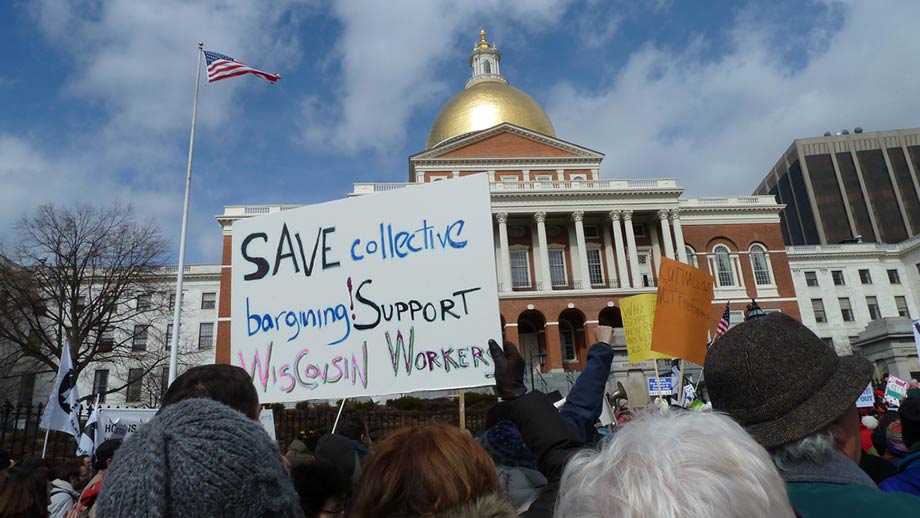Companies haven’t earned our trust when it comes to protecting workers’ rights, so why do states give them the benefit of doubt?

Image credit: sushiesque/Flickr. (CC 2.0 by-nc)
Penelope Kyritsis (BTS): What is the importance of the Special Rapporteur’s fourth report on freedom of peaceful assembly and association?
Shawna Bader-Blau: What’s really important about this report is that it frames fundamental workers’ rights within a broad array of UN human rights. It says very clearly that labour rights are human rights, by any standard. That’s important because, in today’s economy, more and more workers are being undercut in their wages and workers’ conditions. At the same time, we have more economic growth than ever before – from Algeria, to China, and the United States. We see economic growth everywhere, but the prosperity isn’t shared and workers are not getting their fair share.
This report highlights all the ways employers are distancing themselves from fundamental labour rights at a time when we need them more than ever.
One of the core ways that workers can get their fair share is through coming together and forming organisations and trade unions that can actually bargain for better wages. Without these organisations, civil society, trade unions, other NGOs that work on labour rights, and a broad array of human rights organisations fighting for workers’ rights, without the ability to associate, we can’t do that. This report highlights all the ways the global economy, employers, and corporations are actually distancing themselves from these fundamental labour rights at a time when we need them more than ever.
Penelope: What can be done to hold states accountable for upholding these fundamental labour rights and to push forward the recommendations of this report?
Shawna: On the level of states, civil society needs to step up, and join together to hold governments accountable under their own laws and to advocate for better laws. We need to hold our governments accountable for implementing them through democratic processes.
On the global level, there’s a whole other issue, because so much of the global economy is essentially ungoverned. We have the broadest expansion of investor rights, with no curtailment. At the same time, we are experiencing the closing of space for civil society and a deep attack of human rights. So we are contracting human rights and at the same time expanding investor rights and not governing them. And that is seen through how we negotiate and implement trade agreements, where investors and the private sector are given not just a supreme, elevated voice in creating these agreements but also in their protection.
No one can say that it is not their fault that a child is working in a mine or a woman is being attacked in a factory.
We can also see that in how we don’t govern global supply chains. If I’m a company anywhere – China, Brazil, the United States – I can access goods and services along my supply chain from all over the world. If in one of those countries I am employing children in a mine, or in one of those places women are being harassed and violated at work, I can say that this has nothing to do with me at my home base.
The way we need to be holding governments and employers better accountable is by expanding human rights; otherwise, it is completely unbalanced. So what we are arguing for are global standards like binding legislation to govern supply chains. We are also arguing for new standards on gender-based violence at work. Men and women experience violence at work, and women disproportionally to men experience many forms of violence.
I challenge any corporation to say that they do not carry any responsibility for violence against women in their supply chains. I think that together, we can come up with a way to make that stop. I think we can agree that it is part of our responsibility as global citizens to make sure that women are not exploited in that way, and that workers are paid what they deserve. No one can say that it is not their fault that a child is working in a mine or a woman is being attacked in a factory.
Shawna Bader-Blau is the executive director of the Solidarity Center, the largest global workers rights organisation in the United States. She shared her insights on the significance of the fourth report of the UN special rapporteur on the rights to freedom of peaceful assembly and of association, presented to the UN General Assembly on 21 October 2016.
(This article was first published on OpenDemocracy.net.)
